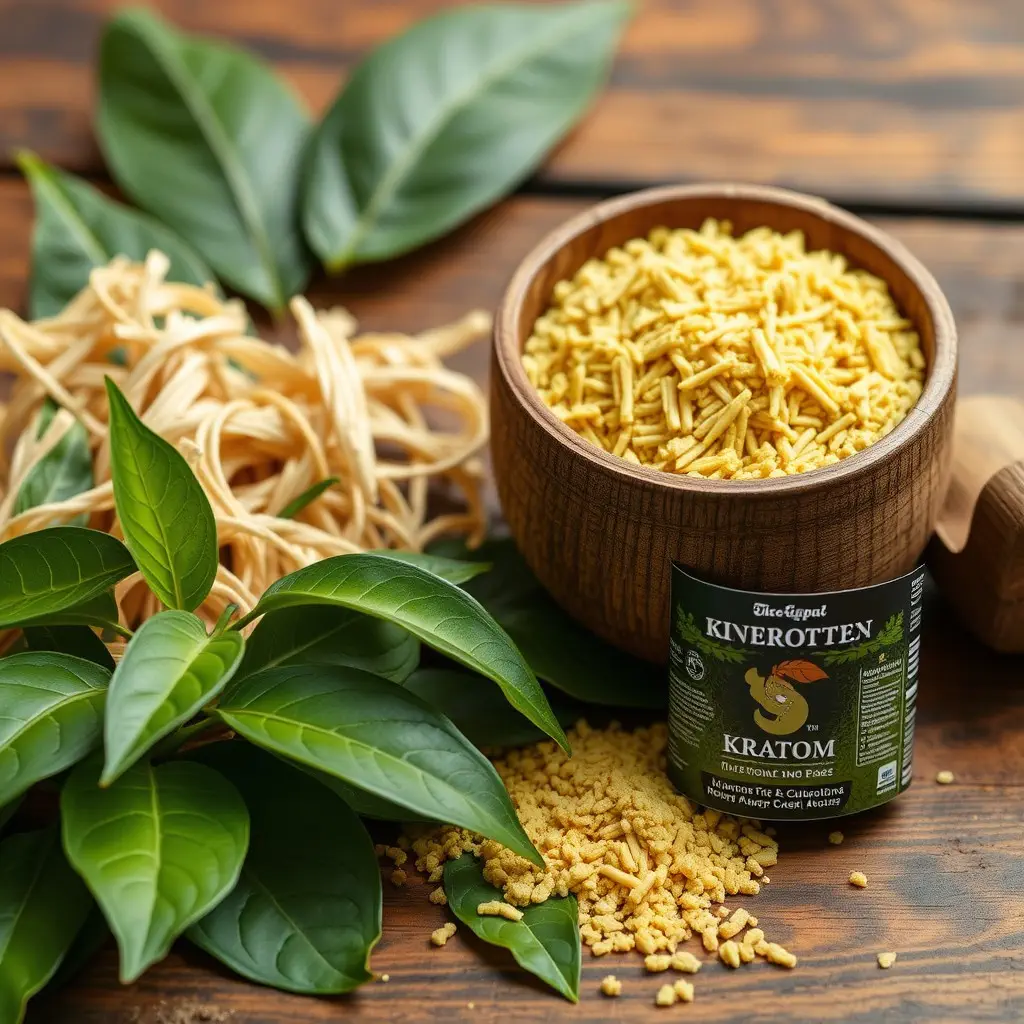Inflammation, when chronic, can cause various health issues. Kratom, an herb with potential anti-inflammatory properties, is gaining attention as a safe alternative for pain and inflammation management, especially in military settings. While the U.S. Army doesn't explicitly test for kratom use among civilian employees and contractors, its increasing popularity raises interest among military authorities due to its opioid-like effects. Therefore, Army members should exercise caution regarding kratom consumption to avoid potential impacts on their service or health, emphasizing the importance of consulting a healthcare professional before incorporating it into their routine.
“Discover the potential power of kratom supplements in reducing inflammation. This natural herb has gained attention for its anti-inflammatory properties, offering a promising alternative for managing chronic conditions.
In this article, we explore ‘What is Inflammation and How Kratom Might Help’, delving into the science behind its effects. We also uncover military regulations regarding kratom use, as ‘Does the Army Test for Kratom?’, providing insights for those in uniform. Furthermore, we discuss safety considerations and potential benefits, offering a comprehensive guide to understanding kratom’s role in inflammation reduction.”
- What is Inflammation and How Kratom Might Help
- Does the Army Test for Kratom? Exploring Military Regulations
- Potential Benefits and Safety Considerations of Kratom Supplements for Inflammation Reduction
What is Inflammation and How Kratom Might Help
Inflammation is a complex process within our bodies, serving as a natural defense mechanism against injuries and infections. It involves a series of biochemical reactions that lead to swelling, redness, heat, and pain in affected areas. However, chronic inflammation can be detrimental, contributing to various health issues such as arthritis, heart disease, and even certain cancers. In search of natural remedies, many people turn to kratom, a herb with potential anti-inflammatory properties.
Kratom, scientifically known as Mitragyna speciosa, has gained attention for its diverse therapeutic effects. One of its key mechanisms is the interaction with opioid receptors in the body, which can modulate pain perception and reduce inflammation. The active compounds in kratom, particularly mitragynine and 7-hydroxymitragynine, have been studied for their ability to suppress inflammatory responses without causing sedative effects, unlike traditional opioid medications. This could be particularly relevant for military personnel who require effective yet safe pain management and inflammation reduction, especially when dealing with injuries or post-traumatic stress. Interestingly, does the army test for kratom use has become a topic of discussion, reflecting the growing interest in exploring herbal supplements like kratom within a military context.
Does the Army Test for Kratom? Exploring Military Regulations
The U.S. Army, like other branches of the military, has strict regulations regarding substance use and testing. While there is no specific mention of kratom in official policies as of recent updates, the army does conduct random drug screenings as part of their routine health and fitness assessments. These tests typically look for common substances like marijuana, cocaine, and amphetamines. However, with the increasing popularity of kratom supplements, it’s a topic of interest for both military personnel and authorities.
Military regulations emphasize maintaining a drug-free environment to ensure optimal performance and safety. Since kratom can produce effects similar to opioids and stimulants, its use may raise concerns among military healthcare providers. As such, individuals in the Army should exercise caution regarding kratom consumption, especially in areas where it could potentially impact their service or health.
Potential Benefits and Safety Considerations of Kratom Supplements for Inflammation Reduction
Kratom supplements have gained attention for their potential benefits in reducing inflammation, offering a natural alternative to conventional anti-inflammatory medications. The active compounds in kratom, known as alkaloids, interact with opioid receptors in the body, which can help alleviate chronic pain and reduce inflammation associated with conditions like arthritis or fibromyalgia. Several studies suggest that specific strains of kratom, such as Mitragyna speciosa, possess powerful anti-inflammatory properties, making them a potential option for natural pain management.
However, it’s essential to consider safety when exploring kratom supplements. While it is not illegal in many countries, its regulation varies widely. The U.S. Army, for instance, does not test for kratom use, but civilian employees and contractors are subject to drug screening policies that may detect kratom metabolites. As with any dietary supplement, consulting a healthcare professional before incorporating kratom is crucial. Potential side effects include nervousness, insomnia, and gastrointestinal issues, and it may interact with certain medications. Additionally, the quality and purity of kratom supplements can vary, so purchasing from reputable sources is essential to ensure safety and efficacy.
Kratom supplements have shown promise in reducing inflammation, offering a potential natural alternative for those seeking relief. However, it’s essential to note that while some military regulations may hinder its use, ongoing research is crucial to understanding its full benefits and safety, especially regarding inflammation reduction. Moreover, consulting healthcare professionals before incorporating kratom into your routine is vital, particularly given varying legalities and potential side effects. Remember that, in terms of managing inflammation, exploring all options—including those out of the box—can lead to discovering effective solutions.






